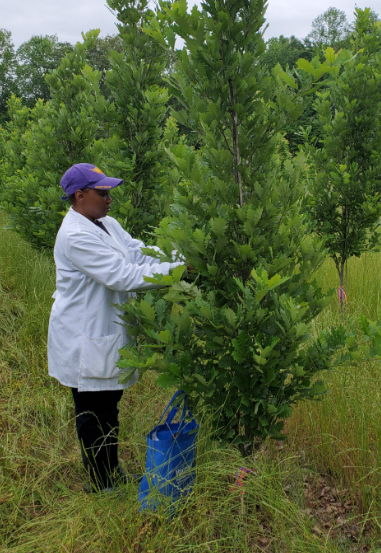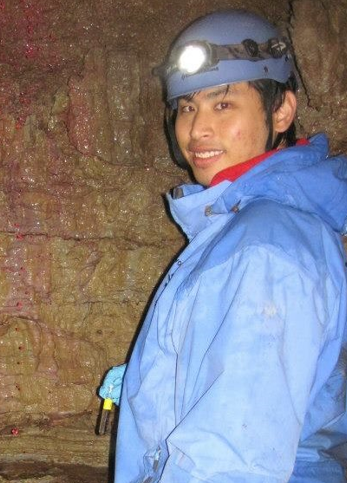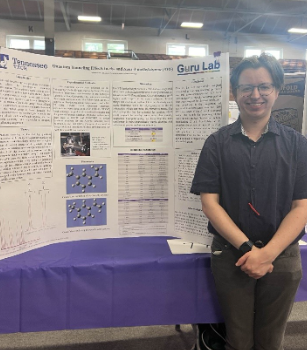Sahar is a bioinformatician in the Rahnama Lab. Her primary research focus lies in studying the genome's evolution and structure of Fusarium species. She conducts in-depth analyses of the genomes of these organisms to gain insights into their genome rearrangement and how it has evolved. Sahar's work in this field is geared towards advancing our understanding of the genetic mechanisms underlying Fusarium species' evolution and pathogenicity.


 Namal Abeysooriya - Chemistry
Namal Abeysooriya - Chemistry Daniel Adams - Integrated Research
Daniel Adams - Integrated Research Mary Olufunke Adepoju - Geology
Mary Olufunke Adepoju - Geology Mark Baldwin - Geosciences
Mark Baldwin - Geosciences Peter Blum - Biology
Peter Blum - Biology Martine Patiance Bowombe-Toko - Agriculture
Martine Patiance Bowombe-Toko - Agriculture Tong Chen - Biology
Tong Chen - Biology
 Ronnie Dunn - Agriculture
Ronnie Dunn - Agriculture Miranda Gaupp - Biology
Miranda Gaupp - Biology Brooke Grubb- Biology
Brooke Grubb- Biology Cory Highway - Biology
Cory Highway - Biology Wayman Ho - Integrated Research
Wayman Ho - Integrated Research Oluwasola Ifedayo - Chemistry
Oluwasola Ifedayo - Chemistry Thomas Miles - Biology
Thomas Miles - Biology Cadence Miller - Chemistry
Cadence Miller - Chemistry
 Zoë Porter - Biology
Zoë Porter - Biology Md. Bayazid Rahman - Agriculture
Md. Bayazid Rahman - Agriculture Phillip Roberson - Geosciences
Phillip Roberson - Geosciences Sahar Salimi - Integrated Research
Sahar Salimi - Integrated Research Khirujjaman Sumon - Chemistry
Khirujjaman Sumon - Chemistry David Sutton - Integrated Research
David Sutton - Integrated Research Christopher Waters - Biology
Christopher Waters - Biology SCHEDULE A VISIT
SCHEDULE A VISIT